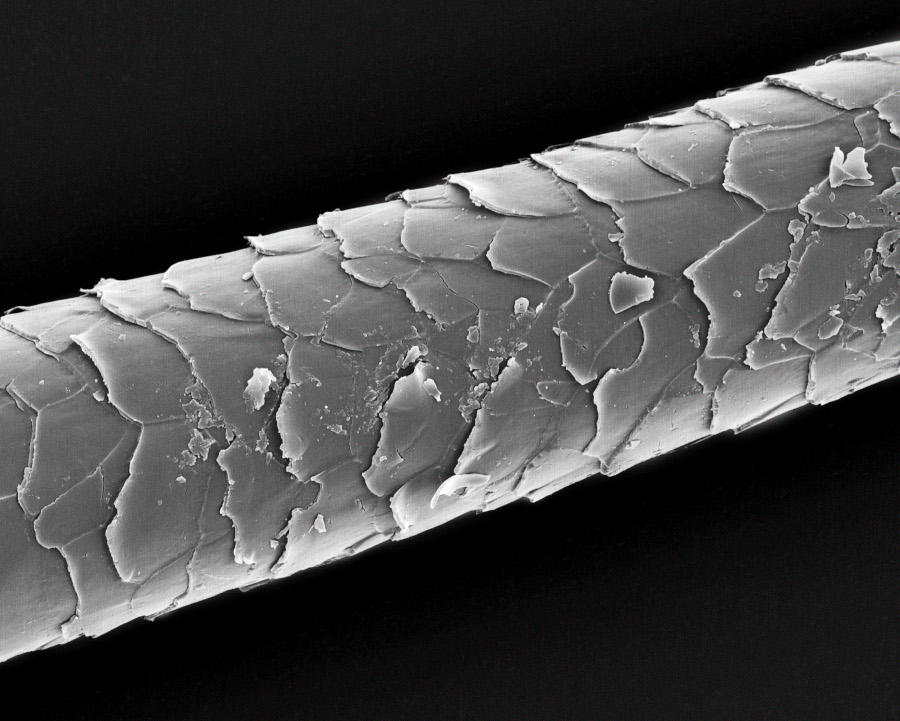Losing hair?
And don’t know why? It could be your hormones, inflammation, lifestyle or more. Sign up now and get your questions answered.

Symptoms of hair loss
Hair loss, also known as alopecia, refers to a loss of hair from the scalp or anywhere else on the body. It's normal to lose a few strands of hair daily, however, significant hair loss can lead to balding or thinning hair, which might be a symptom of an underlying health condition.
- Thinning of Hair: Noticeable reduction in hair density and thickness.
- Receding Hairline: Gradual retreat of the hairline, especially in men.
- Bald Patches: Areas of the scalp where hair is completely absent.
- Excessive Shedding: Increased hair fall during brushing, washing, or combing.
- Visible Scalp: Greater visibility of the scalp due to sparse hair coverage.
- Changes in Hair Texture: Weakening or finer texture of the remaining hair.

Why blood testing is important
Rather than investing in costly hair products as a solution, consider ordering an online test. This approach allows you to gain a more precise understanding of your unique situation before embarking on a tailored treatment plan. It's a strategic and cost-effective way to address the specific issues affecting your hair health.
Why
Iron deficiency or anemia is a common cause of hair loss.
Relevant test
Complete Blood Count (CBC).
How It Helps
This test assesses hemoglobin levels and ferritin, providing insights into iron stores. Low levels may suggest iron deficiency, addressing which can improve hair health.
Why
Deficiencies in these vitamins can impact hair health.
Relevant test
25-Hydroxy Vitamin D and Biotin Blood Tests.
How It Helps
Testing vitamin D and biotin levels identifies deficiencies that can contribute to hair loss. Supplementation or dietary changes can address these deficiencies.
Why
Hormonal imbalances, especially DHT in men, can contribute to hair loss.
Relevant test
Hormone panel including DHT, testosterone, estrogen, and thyroid hormones (T3, T4, TSH).
How It Helps
Assessing hormone levels helps identify imbalances that may be linked to hair loss, guiding targeted interventions.
Why
Thyroid disorders are associated with hair loss.
Relevant test
Thyroid Stimulating Hormone (TSH), Free T3, Free T4.
How It Helps
Evaluating thyroid function helps identify thyroid-related causes of hair loss, allowing for appropriate management.
Why
Elevated stress hormone (cortisol) levels can contribute to hair loss.
Relevant test
Salivary Cortisol Test or Blood Cortisol Test.
How It Helps
Cortisol testing provides insights into stress levels, helping to address stress-related hair loss through lifestyle changes or stress management.
Why
Low ferritin levels may indicate iron deficiency, impacting hair health.
Relevant test
Ferritin Blood Test.
How It Helps
Assessing ferritin levels complements iron evaluation, aiding in the identification and correction of iron-related hair loss.
Why
Assess overall health, including liver function, which can impact hair health.
Relevant test
Comprehensive Metabolic Panel.
How It Helps
A healthy liver supports the processing of nutrients essential for hair health. A CMP can identify liver dysfunction that may contribute to hair loss.
Why
Deficiencies in these vitamins can contribute to hair loss.
Relevant test
Serum Folate and Vitamin B12 Tests.
How It Helps
Testing for folate and vitamin B12 levels helps identify nutritional factors affecting hair health.
Why
Zinc deficiency is linked to hair loss.
Relevant test
Serum Zinc Test.
How It Helps
Assessing zinc levels helps identify and address deficiencies associated with hair loss.
Why
Protein deficiency can impact hair health.
Relevant test
Serum Total Protein and Albumin Tests.
How It Helps
Evaluating protein levels helps identify nutritional factors influencing hair health.
Why
Helps identify genetic predisposition to male and female pattern baldness.
Relevant test
Androgen Receptor Gene Test.
How It Helps
Genetic testing provides insights into the likelihood of developing hereditary hair loss, guiding personalized approaches to prevention or treatment.
Common conditions
Cause
Genetic and hormonal factors, particularly the influence of dihydrotestosterone (DHT).
Symptoms
Receding hairline in men, thinning of hair on the crown in both men and women.
Onset
Typically begins in adulthood.
Cause
Inadequate intake or absorption of essential nutrients, such as iron, vitamin D, vitamin B12, and biotin.
Symptoms
Weak, thinning hair; hair loss; changes in hair texture.
Onset
Can occur at any age, especially if there is a lack of proper nutrition.
Cause
Fluctuations in hormones, including changes in estrogen and progesterone levels in women, and increased DHT levels in men.
Symptoms
Hair thinning or loss, often associated with specific life stages like puberty, pregnancy, and menopause.
Onset
Hormonal changes can occur at various life stages.
Cause
Significant emotional or physical stress, leading to a shift of hair follicles into the resting (telogen) phase.
Symptoms
Sudden and widespread shedding of hair.
Onset
Typically occurs a few months after a stressful event.
Cause
Immune system mistakenly attacks hair follicles, leading to hair loss.
Symptoms
Round patches of hair loss on the scalp or body.
Onset
Can occur at any age, often starts in childhood.
Cause
Repetitive pulling or tension on the hair, often due to tight hairstyles or hair accessories.
Symptoms
Hair loss along the hairline or in areas subjected to constant tension.
Onset
Common in individuals with certain grooming habits.
Cause
Various inflammatory skin conditions, leading to scarring and permanent hair loss.
Symptoms
Hair loss with scarring on the scalp.
Onset
Depends on the underlying skin condition.
Cause
Certain medications, including chemotherapy drugs, blood thinners, and hormonal medications, can cause hair loss as a side effect.
Symptoms
Diffuse hair thinning or loss.
Onset
Can occur during the use of specific medications.
So, what should I do?
Start by signing up to our Premium anti hair loss program, it’s your first step towards finding the culprit and solving your hair concerns. Whether it's addressing hormonal imbalances or exploring targeted treatments, our solutions are tailored to your unique needs. Ready to witness the transformation? Begin your personalized hair action plan today.
Start Here
Check out our all-inclusive hair loss program nowWhy Private MD Labs?
Lab order
in a few minutes
Low prices
since 2005
90 day money-back
guarantee
No waiting
at the doctor's
Labs within
2 miles
Private, accurate
and secure
